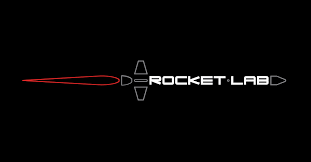Moon Express Advances In Its Quest To Win The Lunar XPRIZE
Last year, I blogged about Moon Express, the first private space company to be licensed for travel beyond Earth orbit by the U.S. government. Moon Express plans a lunar mission in late 2017. Recent developments have certainly been positive for ME.
Last Tuesday, ME announced that it had raised another twenty million dollars which brings its total fund-raising to forty-five million dollars. Peter Thiel's Founders Fund, the Collaborative Fund and Autodesk have all contributed.
Another positive development has to do with the members of the Trump NASA transition team, Charles Miller and Chris Shank, who are advocates of commercial space unmanned and manned ventures. The nominee to head NASA put forward by the new U.S. President, Republican Representative Jim Bridenstine, is also a supporter of the private space industry.
ME hopes to be able to win the Google Lunar XPRIZE. To win the XPRIZE, the contestant must successfully land a rover on the lunar surface, travel about seventeen hundred feet and radio back high resolution still shots and video from the Moon. The winner of the XPRIZE will receive twenty million dollars. The winner's mission must take place before the end of 2017. The chairman of ME says that they have all the resources they need for a November or December launch of their Moon mission.
ME was encouraged by a call last fall from NASA for concepts for private space companies to deliver payloads to the Moon. ME enjoys a public-private partnership with NASA which allows ME to access NASA engineering expertise. ME has licensed Launch Complexes Seventeen and Eighteen at Cape Canaveral.
ME currently has private contracts for delivering payloads to the Moon. These future missions include delivering the international lunar observatory to the Moon, delivering retroreflector arrays to the Moon to test relativity physics, and delivering human remains and DNA for Celestis, a company that has already sent ashes from a human cremation to the Moon. ME also hopes to get a contract from NASA for lunar payloads.
Rocket Lab, a New Zealand company that provides rockets for private space missions has been contracted to provide five of their Electron rockets for planned ME missions. Following the use of the Electron rockets, ME plans to shop around for rockets for future missions.
The goals of ME are to "mine the moon for valuable resources such as helium-3, gold, platinum, iridium, ruthenium, rhodium, palladium, rare earth metals, and water and to help researchers develop human space colonies for future generations." Helium-3 is rare on Earth but common on the regolith of the Moon from billions of years of bombardment of the solar wind. It is considered to be an excellent fuel for nuclear fusion reactors which are currently under development. There is also water on the moon which could be mined for lunar colonies and could also be separated into oxygen and hydrogen by solar power to use as a fuel for spacecraft.
ME is just one of several companies that are working to win the XPRIZE, including SpaceIL in Israel, Team Inus in India and Synergy Moon which is an international team. And there are other companies and countries such as China working on mining missions to the Moon. The exploration and exploitation of space is a growth industry.
